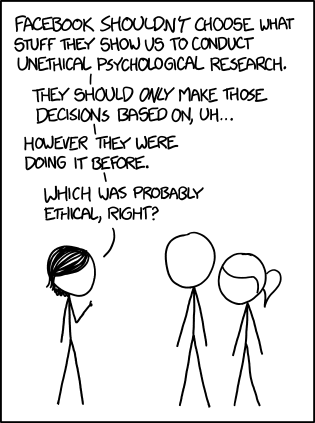Links and Thoughts 30: 7 July 2014
Just a links round-up for today; I need to post these before they get stale.
Best long read for today:
“To put this in perspective: it was 300 years from Gutenberg’s printing press to the scientific and intellectual re-alignments of the Enlightenment, and to the French and American revolutions that that liberating technology ultimately made possible. These things can take a loooong time to work all the way out.”
Hobby Lobby and the wrong end of history -
Why Patriarchal Men Are Utterly Petrified of Birth Control and Why We’ll Still Be Fighting About It 100 Years From Now : Alternet
Cities and Citizens:
- The Future of the Workforce May Be Part-Time, Says Google CEO Larry Page : Re/code
- These bricks are like Lego for full-sized buildings : Ars Technica (OK: if we could combine these new Smart Bricks with Hebel Blocks then we’d really be onto something.)
- Billboard House : Pop-up City
- McMansions Spark Debate in Decatur, Georgia : Planetizen
- The Pitchforks Are Coming : Politico
- 5 Reasons the Rich Are Ruining the Economy by Hoarding Their Money : Alternet
Science:
Scientists discover one of the most Earth-like planets yet : The Verge
With Kepler and other astronomy efforts finding exoplanets all over the place (seemingly so many that only the other ‘earths’ out there manage to make the news these days) it’s an excellent time to revist Chris Wayan’s planetology thought-experiments.
Technology and its Discontents:
- Social capitalists on Twitter are inadvertently ruining the network for ordinary users, say network scientists : MIT Technology Review
- Twitter’s next trick is to prove it can actually become a stable, grown-up company : Quartz
- Why did Google buy Songza? Rdio knows. : SlashGear
- “Sharing Economy” : Alternet; One might even characterize it as the difference between the philosophy behind Creative Commons, and the economic theory ‘Tragedy of the Commons’: http://creativecommons.org/about, http://en.wikipedia.org/wiki/Tragedy_of_the_commons
Books:
“Amazon offers a superb shopping experience, if you already know what you are looking for (awareness) and want to buy it (desire/action). Through low prices, ease of use, trust and reliability Amazon has built a platform that is not a discovery portal, but a destination where you mostly buy content discovered elsewhere (the much loathed show-rooming effect).
“Amazon does make recommendations but these are optimized to up-sell or cross-sell (increase your basket value) or are based on re-targeting (reminding you of products you previously clicked on). Up-selling for Amazon means guiding a user to higher margin products, which are typically not books. It is also worth bearing in mind that Amazon’s recommendation engines are optimized to be extremely fast. This comes at the cost of recommendation quality. Any delay would lead to consumers abandoning their shopping basket and hence reduced revenue instead of increased revenue.
“In a nutshell, improved availability alone does not lead to improved discoverability. The critical component to better online discovery experiences are great user interfaces and recommendation algorithms and we have yet to see the power of personalisation, the Internet’s biggest strength, being fully deployed.”
Discovery, User Experience and the Long Tail : Digital Book World
I’m on record as stating that “The Long Tail” is a change in customer *demand*, not something related to online retail — information about books drives the demand, and while Amazon is a large source of that information, it’s not the only one anymore. In fact, if Amazon somehow just went away, it wouldn’t matter. The internet is a self-driving information mill and we can’t re-pack that firecracker, it’s already gone off. In the realms of music and books, it’s a given that everything is available — no matter how old, weird, niche, ‘unmarketable’, devoid of taste, or just plain wrong.
The trick for some customers is finding it. I’ve never had trouble, myself, and I can get pretty far with just the Google search box for company. What do others do? When customers can’t find a book on Amazon, they call a bookstore, hassle some poor clerk for 45 minutes, ‘discover’ (second-hand, over the phone) the exact book that fits their criteria, and then buy it on Amazon. I invite you to work at a bookstore for a week if you doubt me on that.
That Facebook Thing:
“According to new paper in the Proceedings of the National Academy of Science, Facebook altered the News Feeds for hundreds of thousands of users as part of a psychology experiment devised by the company’s on-staff data scientist. By scientifically altering News Feeds, the experiment sought to learn about the way positive and negative effect travels through social networks, ultimately concluding that ‘in-person interaction and nonverbal cues are not strictly necessary for emotional contagion.’”
Facebook altered 689,000 users’ News Feeds for a psychology experiment : The Verge
Facebook tinkered with users’ feeds for a massive psychology experiment : AV Club
“Facebook made you sad for science” Facebook Just Admitted It Tinkered With People’s News Feeds to Manipulate Their Emotions : Mother Jones
It was just the one time though, right? Oh…
Facebook conducted hundreds of psychological experiments with few boundaries : The Verge
The US military is already using Facebook to track your mood : Quartz
Facebook "data scientists" are totally screwing with you : http://t.co/wqlvP66MTA – where's the option to sign up for the control group?
— Matt Blind (@ProfessorBlind) June 28, 2014









